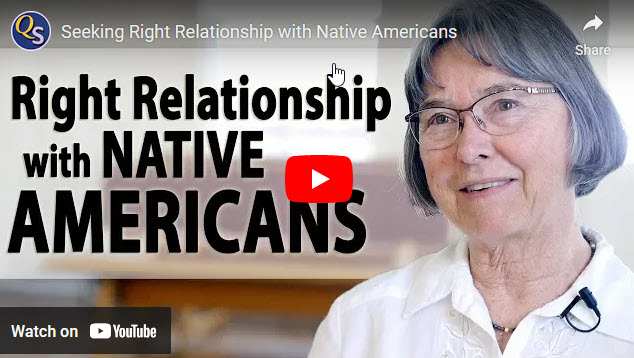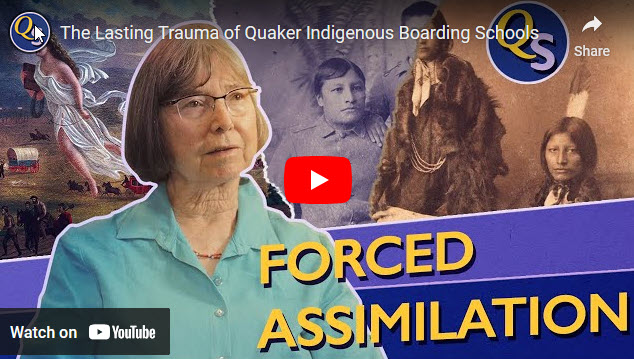Right relationship with Indigenous Peoples
As part of Plymouth Monthly Meeting’s ongoing education about Right Relationship with Indigenous Peoples, the links below to two helpful Quaker Speak will help viewers to learn about relationships with Indigenous peoples and the history of Friends involvement in Boarding Schools. Click on the pictures.

What can be done to heal the damage done to native communities by colonists, including Quakers? As Paula Palmer shares, it begins with telling the truth.
Native people say that for healing to occur—and I think what Quakers are looking for when thinking about what the world needs is healing of many kinds… for healing to occur, the first thing that needs to happen is for us to acknowledge the harm that was done

“Most Quakers still don’t know our history as participants in this enterprise of forced assimilation of Native people,” Paula Palmer says. “So the first thing that we have to do is learn the truth.”
In this video, Paula discusses Friends’ role in the traumas inflicted on the indigenous peoples of North America since the arrival of European colonists—particularly in the administration of boarding schools where Native children were forced to abandon their heritage and embrace the ways of White Christian culture, where they would never be truly accepted as equals.
Although it’s easy to “shake our fingers” at previous generations, Paula warns us that retroactive judgment isn’t enough—Quakers today need to hold themselves accountable as well. “As we think about work that we do today as Friends,” she says, “we need to examine our own attitudes and make sure that ways that we are trying to do good in the world are not also coming out of a sense of superiority.”